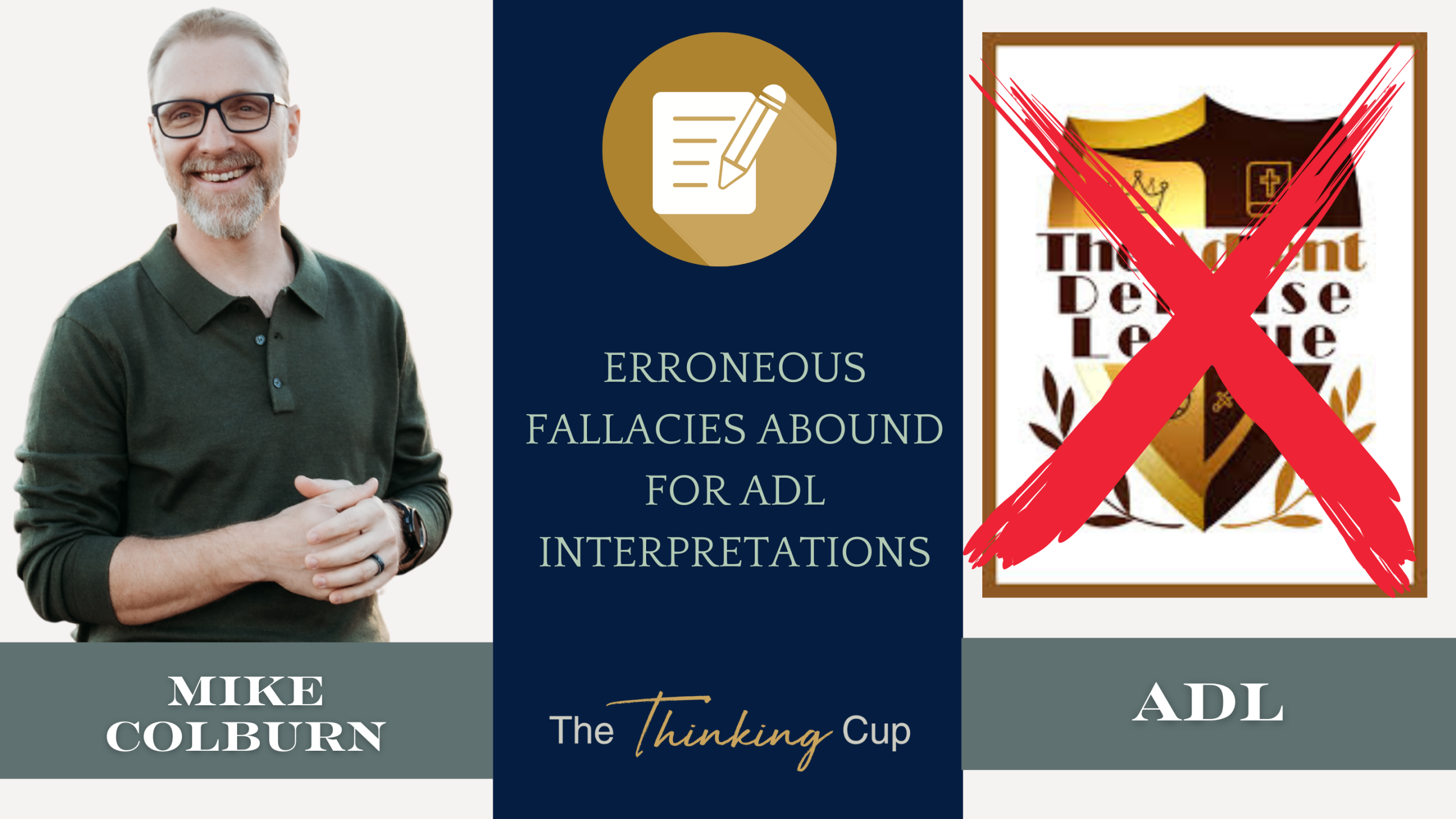Understanding the importance of proper exegetical arguments when interpreting the Scriptures is crucial for anyone who seeks to engage with the Bible meaningfully. Imagine a group gathered around a table, eager to discuss a particular passage of Scripture. Each person brings their unique perspectives, but without a solid foundation of exegesis—an analysis rooted in the text’s historical, cultural, and literary context—the discussion risks veering into misunderstandings.
As the conversation unfolds, contextual awareness is key. One participant might assert a theological claim based on their reading. Still, if they fail to consider the passage’s context, they could misinterpret the author’s intent, leading the group down a rabbit hole of erroneous doctrine. This highlights the essential role proper exegetical methods play in safeguarding against such pitfalls, ensuring that the discussion is anchored in the biblical text.
Moreover, accurate theology is vital for spiritual growth. When individuals employ sound exegetical principles, they pave the way for the development of theology that genuinely reflects the Scriptures. This not only helps individuals grow in their understanding of faith but also promotes unity among the group, as they arrive at a shared understanding based on careful interpretation rather than personal biases or preconceived notions.
In another scenario, think of a pastor preparing for his sermon. The integrity of the sermon hinges on the ability to interpret the text correctly. When pastors rely on proper exegesis, they can confidently teach their congregation without fear of misrepresenting Scripture, thus fostering spiritual maturity within the community. Conversely, failing to do so could lead to ethical missteps and potentially harm the very individuals they strive to guide.
The significance of employing proper exegetical arguments extends beyond academic discourse; it has real-world implications. When believers apply biblical principles accurately to their lives, they find themselves better equipped for moral decision-making and ethical living. This not only enhances their personal faith journeys but also enriches the community around them.
Understanding Scripture requires careful attention to its message. Each time individuals engage with the text using sound exegetical practices, they not only preserve the integrity of God’s Word but also contribute to a collective understanding that unites rather than divides. Thus, the importance of proper exegesis becomes evident: it is foundational for accurate interpretation, ethical guidance, and the nurturing of a vibrant faith community.
In a recent episode of “SDA’s React,” Deonte and Dr. Jason Thomas embarked on a critique of Ray Comfort’s views on the Sabbath. While claiming to “clear the record” and address what Seventh-day Adventists “actually believe,” their analysis unfortunately falls prey to a series of exegetical missteps and logical fallacies. This article will delve into specific instances where Deonte and Jason Thomas’ arguments falter, highlighting the dangers of misinterpreting scripture and cautioning against following teachers who employ such flawed reasoning. By examining their errors, we aim to equip readers with the tools to discern sound biblical interpretation from misleading rhetoric.
Each of the following twenty-five logical and exegetical errors employed by Deonte and Dr. Jason Thomas is also time-stamped with the area in their response video, if you would like to listen directly to their erroneous arguments.
- 6:29 – Argument: Paul kept the Sabbath. Therefore, it’s still binding.
Fallacy: Descriptive vs. Prescriptive confusion.
Why it’s fallacious: Just because Paul attended the synagogue on the Sabbath doesn’t automatically mean it’s a command for all Christians. It could be for evangelistic purposes.
Counter-argument: Highlight the difference between describing what Paul did and prescribing what all Christians must do. Ask for explicit commands in the New Testament for Gentile Christians to observe the Sabbath.
- 9:43 – Argument: Jesus rose again on Sunday, therefore he is my Sabbath.
Fallacy: Equivocation and potentially a straw man.
Why it’s fallacious: It conflates the concept of Jesus being the fulfillment of the Sabbath rest with the idea of replacing the Sabbath day with Sunday. It also sets up a straw man if they misrepresent the views of those who emphasize Jesus as the Sabbath rest.
Counter-argument: Explain the concept of Jesus as the fulfillment of the Sabbath rest (Hebrews 4) without necessarily implying a change of the day. Ask for explicit scriptural support for Sunday observance as a replacement for the Sabbath.
- 16:47 – Argument: The Sabbath is only for the Jews.
Fallacy: This is a potential straw man argument if the person they are debating doesn’t actually believe this.
Why it’s fallacious: It misrepresents the opposing view.
Counter-argument: Ask for clarification if the person they are debating actually believes this.
- 22:45 – Argument: Is the Sabbath explicitly stated in the New Testament?
Fallacy: Argument from silence.
Why it’s fallacious: The absence of an explicit command doesn’t automatically invalidate a practice if there are other supporting principles or implications.
Counter-argument: Argue that the Sabbath is a moral law that is not explicitly done away with in the New Testament.
- 24:05 – Argument: Matthew 24:20 proves the Sabbath is still relevant.
Fallacy: Taking verses out of context.
Why it’s fallacious: Matthew 24:20 is about the end times and the destruction of the temple, not necessarily a universal command for all Christians.
Counter-argument: Emphasize the specific context of Matthew 24 and question whether it directly applies to Christians in the New Covenant era.
- 25:28 – Argument: The New Testament does not explicitly say, “Remember the Sabbath to keep it holy.”
Fallacy: Argument from silence.
Why it’s fallacious: The absence of an explicit statement doesn’t automatically invalidate a practice.
Counter-argument: Argue that the Sabbath is a moral law that is not explicitly done away with in the New Testament.
- 30:58 – Argument: Revelation 1:10 refers to the Sabbath.
Fallacy: Assuming the conclusion.
Why it’s fallacious: The “Lord’s Day” in Revelation 1:10 is not explicitly defined as the Sabbath.
Counter-argument: Point out that the “Lord’s Day” is not explicitly defined in the Bible and that there are other interpretations.
- 33:07 – Argument: If the Sabbath is not explicitly stated, then other Old Testament commands are not valid either.
Fallacy: False analogy and slippery slope.
Why it’s fallacious: It assumes that all Old Testament laws are equally binding unless explicitly repeated in the New Testament.
Counter-argument: Explain that moral laws are still binding, while ceremonial laws are not.
- 36:03 – Argument: If the absence of an explicit command proves that the Sabbath is no longer binding, then incest, bestiality, consulting with familiar spirits are okay too.
Fallacy: Straw man and slippery slope.
Why it’s fallacious: It misrepresents the opposing view and assumes that rejecting the Sabbath automatically leads to accepting all other sins.
Counter-argument: Explain that moral laws are still binding, even if not explicitly repeated in the New Testament.
- 36:43 – Argument: Jesus didn’t use the Sabbath commandment to bring the knowledge of sin to the rich young ruler.
Fallacy: Argument from silence.
Why it’s fallacious: The fact that Jesus didn’t mention the Sabbath doesn’t mean it’s not important.
Counter-argument: Explain that Jesus was addressing the specific needs of the rich young ruler and that the Sabbath is still a valid commandment.
- 49:15 – Argument: Colossians 2:14-17 refers to ceremonial laws, not the Sabbath.
Fallacy: Special pleading.
Why it’s fallacious: It assumes that the Sabbath is different from other ceremonial laws without providing sufficient evidence.
Counter-argument: Argue that the Sabbath is a moral law that is not done away with in Colossians 2:14-17.
- 58:41 – Argument: Colossians 2 is speaking about things that were for reconciliation for the house of Israel.
Fallacy: This is a very narrow interpretation of Colossians 2 and potentially ignores the broader implications of Christ’s fulfillment of the Old Testament sacrificial system.
Why it’s fallacious: It limits the scope of Colossians 2 to only the house of Israel, when the New Testament often speaks of Christ’s sacrifice as being for all believers.
Counter-argument: Argue that while the Old Testament sacrifices were specifically for Israel, their fulfillment in Christ has implications for all believers, Jew and Gentile.
- 1:18:29 – Argument: Hebrews 4 speaks of Sabbath rest.
Fallacy: Equivocation.
Why it’s fallacious: It conflates the concept of Sabbath rest with the spiritual rest found in Christ.
Counter-argument: Explain that Hebrews 4 speaks of a different kind of rest, a spiritual rest in Christ.
- 1:22:52 – Argument: Isaiah 66:23 proves the Sabbath will be kept in the new earth, therefore we should keep it now.
Fallacy: Taking verses out of context.
Why it’s fallacious: Isaiah 66:23 is a prophecy about the future, not necessarily a command for the present.
Counter-argument: Explain that the context of Isaiah 66 is the new heavens and the new earth, and that it’s not necessarily a direct command for Christians today.
- 1:34:48 – Argument: The person who would think to change times and laws is the antichrist.
Fallacy: This is a misapplication of Daniel 7:25.
Why it’s fallacious: It assumes that anyone who changes times and laws is the antichrist.
Counter-argument: Explain that Daniel 7:25 is about a specific power that will arise in the end times, not anyone who changes times and laws.
- 1:36:00 – Argument: Tradition makes void the commandment of God.
Fallacy: This is a generalization.
Why it’s fallacious: Not all tradition makes void the commandment of God.
Counter-argument: Explain that some traditions are helpful, while others are harmful.
- 1:51:40 – Argument: Find one verse in the New Testament where Christians are commanded to keep the Sabbath.
Fallacy: Demanding proof of a negative.
Why it’s fallacious: It’s difficult to prove that something doesn’t exist.
Counter-argument: Argue that the Sabbath is a moral law that is not explicitly done away with in the New Testament.
- 1:52:58 – Argument: The Sabbath is in the Ten Commandments, therefore it’s still binding.
Fallacy: This is not necessarily a fallacy, but it’s an oversimplification.
Why it could be fallacious: It ignores the nuances of covenant theology and the role of the law in the New Testament.
Counter-argument: Acknowledge that the Sabbath is in the Ten Commandments, but explain that the law is not the basis of salvation in the New Testament.
- 1:57:49 – Argument: Those who are defiling the earth in the last days are those who change the ordinance.
Fallacy: This is a misapplication of Revelation 14:7.
Why it’s fallacious: It assumes that changing the ordinance refers to changing the Sabbath.
Counter-argument: Explain that the ordinance in Revelation 14:7 refers to God’s creation ordinance.
- 1:58:02 – Argument: Romans 14 does not apply to the Sabbath because it was not a doubtful disputation of the day.
Fallacy: This is a narrow interpretation of Romans 14.
Why it’s fallacious: It assumes that Romans 14 only applies to issues that were doubtful disputations at the time.
Counter-argument: Argue that Romans 14 is about not judging others on matters of conscience, and that it could apply to the Sabbath.
- 2:00:57 – Argument: Do the law and you’ll be justified.
Fallacy: Legalism.
Why it’s fallacious: It contradicts the New Testament teaching that salvation is by grace through faith, not by works of the law.
Counter-argument: Explain that salvation is by grace through faith, not by works of the law.
- 2:09:27 – Argument: Unbelief and sin prevent you from entering into rest.
Fallacy: This is not necessarily a fallacy, but it’s an oversimplification.
Why it could be fallacious: It ignores the fact that even believers struggle with sin.
Counter-argument: Acknowledge that unbelief and sin prevent us from entering into rest, but explain that we can still have rest in Christ even when we struggle with sin.
- 2:18:41 – Argument: There are no verses in the book of Acts that say Saturday shifted to Sunday.
Fallacy: Argument from silence.
Why it’s fallacious: The absence of an explicit statement doesn’t mean that something didn’t happen.
Counter-argument: Argue that the New Testament implies a shift in worship to Sunday.
- 2:30:27 – Argument: The covenant that God made with Israel was only the Ten Commandments.
Fallacy: Oversimplification of Covenant Theology
Why it’s fallacious: The covenant included more than just the Ten Commandments.
Counter-argument: Explain that the covenant included laws, statutes, and judgments.
- 2:34:53 – Argument: There’s no such thing as a Jewish Sabbath.
Fallacy: This is a semantic argument.
Why it’s fallacious: It ignores the fact that the Sabbath was given to the Jewish people.
Counter-argument: Acknowledge that the Sabbath is for all people, but explain that it was given to the Jewish people first.
Important Considerations:
- Context is Key: Always consider the context of the discussed verses.
- Covenant Theology: Understand the different views on covenant theology and the role of the law in the New Testament.
- Explicit vs. Implicit: Be aware of the difference between explicit commands and implicit principles.
- Straw Man: Be careful not to misrepresent the opposing view.
- Burden of Proof: Understand who has the burden of proof in each argument.
In conclusion, our examination of Deonte and Dr. Jason Thomas’ critique reveals a troubling pattern of exegetical missteps and logical fallacies. From misapplying verses to employing straw man arguments and relying on the fallacy of silence, their analysis demonstrates a concerning lack of rigor in interpreting Scripture. While passionate and well-intentioned, their approach ultimately undermines the very foundation of sound biblical understanding. This serves as a potent reminder of the importance of approaching Scripture with humility, diligence, and a commitment to proper exegetical principles. I want to urge you to exercise discernment, to question assumptions, and to seek out teachers who prioritize accuracy and intellectual honesty over dogmatic adherence to preconceived notions. The integrity of biblical interpretation demands nothing less. Let this analysis serve as a catalyst for deeper study, critical thinking, and a renewed commitment to seeking truth within the pages of Scripture.
In Christian Love,





0 Comments